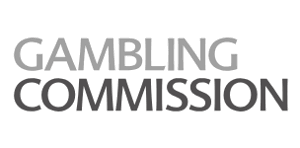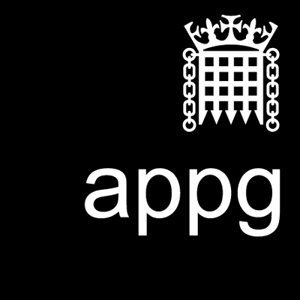Should Bookmakers Be Involved In Their Own VIP Review Or Are They Marking Their Own Work?
 The manner in which VIP customers are treated by gambling companies has been a matter of some debate in recent times. It was revealed at the start of January 2020 that gambling companies were reliant on the high-spending customers to ensure their profits, often enticing them to gamble in spite of knowing that many of them were problem gamblers.
The manner in which VIP customers are treated by gambling companies has been a matter of some debate in recent times. It was revealed at the start of January 2020 that gambling companies were reliant on the high-spending customers to ensure their profits, often enticing them to gamble in spite of knowing that many of them were problem gamblers.
Now the United Kingdom Gambling Commission has come under fire for allowing gambling companies to be part of the review into the practice of VIP customers. The parent company of Ladbrokes and Coral, GVC Holdings, has been invited to review the manner in which VIP schemes operate, which some are saying is akin to allowing them to ‘mark their own homework‘.
Why The Reviews Are Taking Place
 The Gambling Commission collected data from betting companies and found some alarming trends. In one instance, for example, 83% of all deposits the company took came from just 2% of its customer base. The report was not supposed to be seen publicly but a copy of it was seen by The Guardian, who then reported on its findings.
The Gambling Commission collected data from betting companies and found some alarming trends. In one instance, for example, 83% of all deposits the company took came from just 2% of its customer base. The report was not supposed to be seen publicly but a copy of it was seen by The Guardian, who then reported on its findings.
VIP schemes are essentially like membership programmes that give bettors rewards depending on how much money they gamble. These will often be things such as free bets, but the bigger spending gamblers will receive tickets to football matches and other such promotions. They are dependent on them ‘maintaining their VIP status’, however, which often leads to increased gambling.
The UKGC has cited VIP schemes in 7 out of 10 regulatory penalties that it has issued to betting companies, with a failure to prevent problem gambling being one of the biggest issues. The Gambling Commission had already challenged the industry to do more to improve the manner in which VIP customers were dealt with, but the lack of change in their behaviour has led to the need for reviews.
What the UKGC Found About VIP Programs
 The Gambling Commission collected data from nine companies that operated VIP schemes, promising them anonymity in return for the information about how so-called VIPs are handled. They may be anonymous, but The Guardian was able to discover that they were amongst the biggest gambling companies in the country.
The Gambling Commission collected data from nine companies that operated VIP schemes, promising them anonymity in return for the information about how so-called VIPs are handled. They may be anonymous, but The Guardian was able to discover that they were amongst the biggest gambling companies in the country.
As well as the business that took 83% of deposits from 2% of customers, another company took 57% of betting deposits from 5% of its customers, all of whom were VIPs. It is enough to mean that there is a genuine fear within the betting industry regarding a decision to ban VIP schemes, which could deal the industry a major blow.
Why VIP Schemes Are Controversial
 A big part of the reason for the controversy is the fact that VIP customers are far more likely to be problem gamblers than people with regular accounts. The rate of problem gamblers within the VIP community is around 11 times more than with non-VIP gamblers, with approximately 8% of the 47,000 plus VIP customers thought to have a gambling problem.
A big part of the reason for the controversy is the fact that VIP customers are far more likely to be problem gamblers than people with regular accounts. The rate of problem gamblers within the VIP community is around 11 times more than with non-VIP gamblers, with approximately 8% of the 47,000 plus VIP customers thought to have a gambling problem.
It’s likely that the algorithms used to spot betting patterns that lead to customers being made into VIPs are much better at doing that than they are at spotting a problem gambler. It’s also likely that staff responsible for handling VIP accounts are incentivised in their payment, meaning that they will in turn put pressure on customers to bet more in order to receive prizes.
The UKGC Has Set Up Three Working Groups
 The United Kingdom Gambling Commission has set up three different working groups that will look at ways to more proactively protect the most vulnerable people, which has come about because of mounting pressure. The reason it has become the focus of criticism is that the groups are being led by companies working within the industry.
The United Kingdom Gambling Commission has set up three different working groups that will look at ways to more proactively protect the most vulnerable people, which has come about because of mounting pressure. The reason it has become the focus of criticism is that the groups are being led by companies working within the industry.
One such example is a group that is looking at the way in which products can be better designed in order to ‘mitigate the risks posed to problem gamblers’. That is being led by SG Gaming and Playtech. SG Gaming is one of a number of companies that manufactured the hardware and the software that was used in Fixed Odds Betting Terminals.
Playtech, meanwhile, was also behind the software for FOBTs and other online betting games. Their spokesperson suggested that the group would be doing ‘important work’ that would build on their ‘existing work into problem gambling and game design’. It is easy enough to understand why critics of gambling are not overly pleased by their involvement.
GVC Will Lead VIP Group
 Equally as disappointing for critics of the gambling industry is the fact that GVC Holdings, the owners of major gambling businesses like Coral and Ladbrokes, will be leading the group that is looking at the use of VIP incentives. Ladbrokes, lest we forget, were the company that paid the victims of a gambling addict who stole £1 million in order to keep them quiet.
Equally as disappointing for critics of the gambling industry is the fact that GVC Holdings, the owners of major gambling businesses like Coral and Ladbrokes, will be leading the group that is looking at the use of VIP incentives. Ladbrokes, lest we forget, were the company that paid the victims of a gambling addict who stole £1 million in order to keep them quiet.
The customer ran a property business in Dubai and defrauded his clients in order to continue funding his gambling habit that was costing him in the region of £60,000 a day. Ladbrokes VIP scheme saw him receive thousands of pounds worth of gifts in order to encourage him to continue betting, including business class flights to watch football matches.
It should be pointed out that GVC Holdings did not own Ladbrokes at the time that all of this was taking place. Even so, they did advertise for VIP managers who had the ability to increase ‘overall player lifetime value and the revenue contribution for the VIP player base’. That is part of the reason for the mistrust of anti-gambling campaigners.
The Third Group To Look At Advertising

The final group being set up by the Gambling Commission is one looking at advertising by the industry. This one will be led by Sky Bet, which has come under criticism as a company for using former gambling addict Paul Merson in its adverts over the past year. In 2018 the company was fined £1 million for allowing punters to bet after asking to be excluding from doing so.
Sky Bet, which licenses the commercial broadcaster Sky’s name for its promotional material, also continued to send promotional material for its betting offers to people who had asked to be excluded from such information. This is another reason why campaigners are unconvinced by the UKGC’s efforts regarding the review process.
‘Marking Their Own Homework’
 Carolyn Harris, who is a Member of Parliament for the Labour Party and the Chair of the cross-party group of MPs looking into gambling regulation, referred to the decision of the Gambling Commission to allow these companies to be involved in the reviews as being akin to allowing them to ‘mark their own homework’.
Carolyn Harris, who is a Member of Parliament for the Labour Party and the Chair of the cross-party group of MPs looking into gambling regulation, referred to the decision of the Gambling Commission to allow these companies to be involved in the reviews as being akin to allowing them to ‘mark their own homework’.
It is an accusation that the UKGC completely denies. The Chief Executive of the Gambling Commission, Neil McArthur, said that the industry had until March to come up with ‘robust proposals’ or else tougher regulation would be imposed upon it. He said:
“We’re controlling this process, I’ve set the agenda and the timetable, and I’m determined to hold operators’ fees to the flame to deliver what’s promised. Some of the operators involved in this have been on the sharp end of our enforcement activity but as a result they’re in no doubt about the consequences of getting this wrong”
Psychologist Dr Steve Sharman of the University of East London believes that the industry has a ‘vital role to play’ but thinks that it’s not right for them to be put in charge of the efforts to make gambling safer as an activity. As an expert in gambling addiction, Dr Sharman referred to the UKGC’s decision to involve these gambling operators as ‘extremely surprising and disappointing’.



